
Wait, Is That Normal?
So, you took your daughter to the dentist (hooray for healthy habits, right?), and after what should have been a routine appointment, she comes home with one cheek looking like she’s hiding a whole golf ball in there. Swollen. Tender. Maybe even a bit red. Ugh.
If you’re reading this, you probably know that worry—the kind that sits in your belly, making you ask: “Is this normal, or should I be worried?” Let’s talk about why this happens, whether it’s just one of those temporary quirks, or if it’s time to call in the professionals.
How It Starts: That Numbing Shot
What’s Actually In the Needle?
I bet you watched the dentist take out that little syringe, reassuring your daughter with a soft voice about a “small pinch.” That, my friend, is local anesthesia. It’s meant to numb the nerves around the tooth, so any drilling, poking, or filling feels like, well, nothing. Most of the time, it works like magic.
But sometimes… that magic has a twist. Maybe it’s just the body’s way of fussing, or maybe something a bit more complicated has happened underneath the surface.
Why Faces Swell After Dental Work
Here’s the science-ish version, without the jargon: when the dentist pokes that needle into the gums or cheek, sometimes a tiny blood vessel gets hit (kind of like those tricky veins that hide away from flu shots). When that happens, a little hematoma—which basically means a small pocket of blood—can form and make the face puff up.
It’s pretty common for kids to complain about numb lips, tingly gums, or even droopy cheeks for a bit. (Ever watched a child try to drink a smoothie when half their mouth is asleep? Comedy gold.) Often, a little swelling or bruising is just the body’s way of saying, “Hey, you poked me!” according to dental experts and posts about cheek swelling after dental injection.
Let’s Get Real: When Swelling Isn’t “Just Swelling”
But… sometimes it crosses that line between “eh, it’ll pass” and “wait, this is getting worse!” If you notice any of the following, pay attention:
- Pain that keeps getting worse instead of fading.
- Swelling that spreads down to the throat or up near the eye.
- Difficulty opening the mouth, or trouble swallowing/breathing.
- Fever, chills, or severe redness in the area.
That’s when you stop scrolling and start dialing the dentist’s number. Sometimes, even a routine visit can introduce bacteria into the tissue (especially if there’s already a small infection in the tooth), which can lead to facial cellulitis—a swelling you really don’t want messing around with a child’s airways or vision. (It sounds scary, but catching it early makes a world of difference.)
If It’s Just Puffy… Wait, Or Worry?
| Symptom | Usually Harmless? | Get Help If… |
| Mild swelling after shot, fades with ice | Yes | Swelling grows or hardens after 24+ hrs |
| Tingling or droopy cheek/lid | Yes, normal nerve effect | Lasts longer than 24 hrs, or is severe |
| Painful lump at injection site | Common hematoma | Gets red, very hard, or hot to touch |
| Pain or swelling persisting a week after | No | Dental injection pain after a week: definitely call! |
So, what about kids? They sometimes make things worse by absentmindedly chewing, sucking, or scratching at the numb, puffy area—that can actually cause more swelling, or even little abrasions you might not spot at first. (I once caught my nephew happily gnawing his own lip after anesthesia, thinking it was a fun game. Kids, right?)
Why Does This Happen, Anyway?
Not All Faces React The Same
Here’s a secret: no two bodies react exactly the same to dental anesthesia. Maybe your child’s dentist has done this a thousand times, but it only takes one blood vessel being just a millimeter off for that hematoma to form. Sometimes, the medication itself is the culprit—rarely, children and adults can have allergic reactions to something in the injection, like preservatives (thankfully, these days, most of the old offenders are removed).
Immediate allergies tend to be dramatic and obvious—think rapid swelling, trouble breathing, or hives. That’s an ER visit, no messing around (as per NHS recommendations). But delayed reactions? Those creep up on you—localized redness, swelling, or itching a day or two after. Annoying but usually not dangerous. Still, it’s good to mention the reaction at the next dental visit just to keep everyone in the loop.
Behind The Scenes: What You Don’t See
Sometimes, deep nerve irritation plays a sneaky role—this is rare, but it happens. Nerves in the face are… complicated. Trigeminal neuralgia (just a fancy term for nerve pain in the face) can be triggered by dental work, and in some cases, pain from this can linger way longer than you’d expect. If your daughter starts saying, “My face still hurts and it’s been days,” don’t just shrug it off. Watch for patterns, and if it’s sticking around, have a look at advice about dental injection pain after a week.
What Can You Do At Home?
Here’s What Worked For Me (& Other Parents I Know)
First: relax. Most swelling will go down with a little bit of time and TLC. But a few things can help speed things along—or at least make your daughter more comfortable while nature does its thing.
- Ice, Ice, Baby. Seriously, a cold pack wrapped in a washcloth, 10-15 minutes at a time. Makes a world of difference!
- Soft Foods Only.
- Keep her distracted from poking, biting, or sucking her own cheek. (Sometimes, I wrap up an audiobook or throw a blanket fort party to keep little hands away from swollen faces. Desperate times…)
- Pain relievers—think acetaminophen or ibuprofen, always by the dose chart. Hold the aspirin (that can make things worse with swelling or bruising).
- Watch for signs of infection: new gum bumps, pus, persistent fever.
You may have read about similar advice floating around the web on guides for cheek swelling after dental injection. It really does work!
What If The Swelling Won’t Quit?
Clock-watching? Most basic swelling starts fading within 24 hours—definitely after two or three days, your little one should start looking more like herself. But if it lasts longer…that’s your cue. Sometimes, the issue is deeper, like an infection or bruised nerve. (I know a mom who waited five days before calling her dentist—turned out her son needed antibiotics. Sometimes, trusting your gut matters as much as any medical degree.)
Signs At-A-Glance Table
| What You See | Most Likely | Consider This |
| Just puffy, a bit red, no fever | Normal hematoma/swelling | Monitor closely, ice, soft food |
| Pain escalates, swelling hardens or gets redder | Possible infection or deeper bruise | Call dentist; antibiotics may be needed |
| Difficulty breathing, huge swelling, hives | Possible allergic reaction, cellulitis | Call 911 or get to ER immediately |
Connecting With Your Dentist
When (And How) To Call For Help
Look, nobody likes making that “Is this an emergency?” call, but dental teams have heard it all. Don’t feel silly. Explain exactly what’s happening—describe the swelling, pain, and any other symptoms. If they say, “Come in,” trust the process. Occasionally, they’ll ask for pictures to save you a trip (handy in the age of telehealth!).
And if it really is a weird allergy or rare nerve issue—they’ll know what to do. Sometimes, dentists might refer you on for allergy testing (like the NHS suggests in cases of repeat reactions), or, very rarely, to an oral surgeon for complex cases (see more details here if you’re curious about the protocols).
Peace of mind is worth its weight in gold. And if you’re facing persistent discomfort, don’t hesitate to check reliable resources (like detailed info about dental injection pain after a week) to see if your experience matches up.
Let’s Be Honest: Kids Don’t Always Tell The Whole Story
Quick confession = my own daughter once let her face balloon to chipmunk size before admitting, “Actually… it started hurting after I ate that bagel.” Kids might not share when it starts, or they downplay symptoms because they’re nervous. That’s why just watching, asking gentle questions, and trusting your gut is key. If they seem off—extra cranky, sleepy, restless—listen to that parental radar.
Words Of Comfort (And A Little Humor)
Listen, as a parent, worrying is basically a job requirement. But, most of the time, a swollen, painful cheek after a dental injection is an annoyance, not a disaster. It’s like when you bump your elbow and it decides to be dramatic for way longer than necessary.
Still, you’re wise to watch, support, and ask questions—because sometimes, that simple check-in can catch bigger problems before they snowball. Your care and quick action really do make a difference. Hug your kid, snap a “chipmunk-face” photo for their future wedding slideshow, then keep doing all the things good parents do (even when the dental gods have a laugh at our expense).
Your Turn: What’s Next?
If you’re still worried, or if your daughter’s face swollen and painful since dentist injection won’t let up, call the dentist. Trust your gut. Don’t let that inner voice talk you into endless waiting. At the end of the day, you know your child best, and being the “over-cautious” parent, especially when it comes to faces and breathing and pain—well, it’s actually just being a great parent.
Here’s to hoping her smile is back to normal by tomorrow—or better yet, that she’s already teasing you for worrying “so much.” Drop your stories in the comments, share your favorite cold-compress tricks, or just shoot me a message if you’re wrestling with that “should I call?” moment. You’re not alone in this—I promise.
Take a deep breath, sneak in a cuddle, and remember: you’re doing an amazing job, even on the weird, swollen-face days.


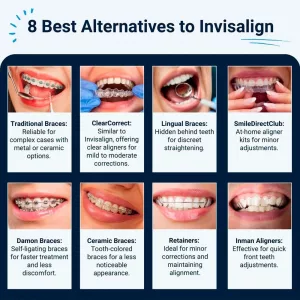

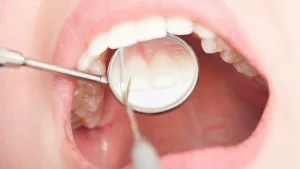
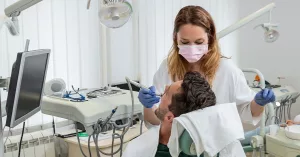

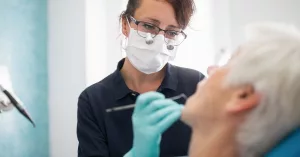

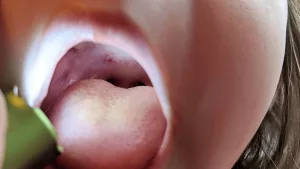

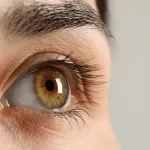

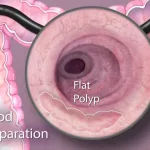
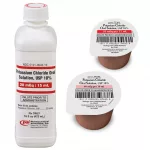










Leave a Reply
You must be logged in to post a comment.